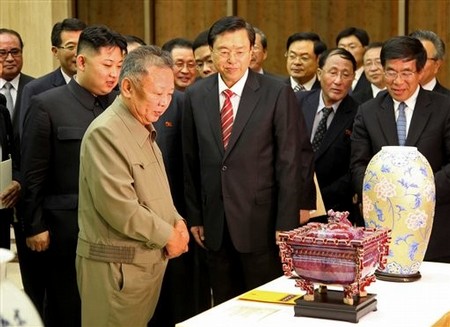The consequences of regime change in North Korea.

Asia Sentinel looks at the harsh reality of what a potential reunification between North and South Korea would entail:
It is not possible to predict how, when or if such an event could happen although the United Nations World Food Program said in May that the northâ??s food supply is about to run out and that perhaps a quarter of the countryâ??s people would be at risk of starvation. But if the north does collapse, it is likely to make the reunification problems between East and Western Germany look like a picnic. â??What would be likely if that time arrives, however, is a massive outflow of refugees because of the brutal living conditions in the North. South Koreaâ??s struggle to integrate quite small numbers shows what an immense challenge this would be for the region and international actors.â?North Korean defectors, the report says, â??are sicker and poorer than their Southern brethren, with significantly worse histories of nutrition and medical care. They have distinctive accents, use different words and have little experience in the daily demands of life in a developed and open society. In the North, their education, employment, marriage, diet, and leisure were determined by the government, which assigned them to a class of people based on family history and political reliability. In the South, the array of choices presents them with endless difficult decisions that can be overwhelming.â?
There's often a lot of frustration in the U.S. regarding Chinese and South Korean cooperation on North Korea. But judging from the massive social and economic dislocation that would result from a collapse of the North Korean state, it's little wonder they're not enthusiastic about regime change.
(AP Photo)



